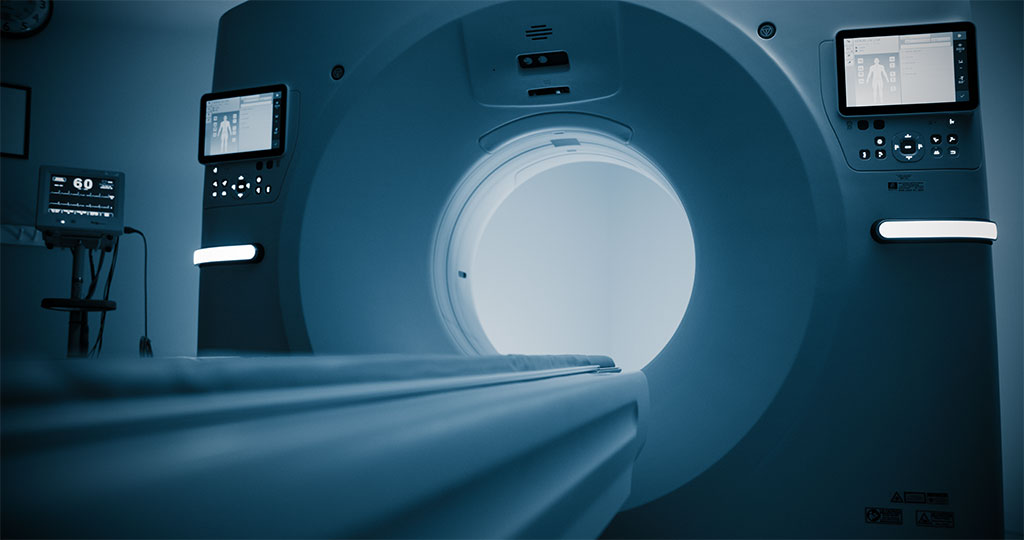Novel CT Scanner Automates Time-Consuming Radiologic Tasks
By MedImaging International staff writers
Posted on 06 Oct 2021
A new computerized tomography (CT) scanner offers clinicians a host of artificial intelligence (AI) technologies to optimize scan range settings, dose, and image quality for each patient.Posted on 06 Oct 2021
The GE Healthcare (Chicago, IL, USA) Revolution Ascend CT system offers a 75 cm wide-gantry and lower table position to accommodate high body mass index (BMI) patients, as well as trauma cases that would otherwise be too fragile to maneuver into smaller gantries. The physical properties are accompanied by Effortless Workflow, a new suite of AI solutions that require significantly less effort from the CT technologist.

Image: The Revolution Ascend CT scanner (Photo courtesy of GE Healthcare)
The system’s attached bar code reader scans the patient’s chart or tag and personalizes each exam by automatically pulling up the patient’s information and suggesting relevant protocols. With one click, the CT technologist can then initiate Auto Positioning, which uses real-time depth-sensing technology to generate a 3D model of the patient’s body and determine the correct table elevation and cradle movements to align the center of the scan range with the isocenter of the bore.
Once the patient is ready to be scanned, intelligent tools embedded in the new Clarity Operator Environment provide optimal scan range settings, dose, and image quality for each individual. A dedicated deep convoluted neural network (CNN) is then used to generate TrueFidelity CT Images that improve reading confidence in a wide range of clinical applications, such as head, whole body, and cardiovascular, for patients of all ages.
“We designed Revolution Ascend with accessibility in mind. Not only does the system’s hardware help accommodate more patients with various physical limitations, but its cutting-edge AI also helps expedite exams so healthcare system schedules can accommodate additional patient scans,” said Jean-Luc Procaccini, President and CEO of molecular imaging and CT at GE Healthcare. “Altogether, Revolution Ascend with Effortless Workflow helps empower clinicians to reach the right diagnosis as efficiently and precisely as possible for more patients.”
“The most time-consuming part of the CT experience isn’t the scan itself, but the steps that fall outside the scan,” said Timothy Szczykutowicz, PhD, of the University of Wisconsin (Madison, USA). “Within a typical 10–30-minute CT exam, the scan itself only takes a few minutes and the remainder of the time is dedicated to patient prep, including positioning the patient and identifying the correct protocols and settings, plus image reconstruction and report time. Historically, these have been manual processes, putting them at risk of human error; however, AI offers new opportunities to automate workflows and expedite exams with the same or better results.”
Related Links:
GE Healthcare














